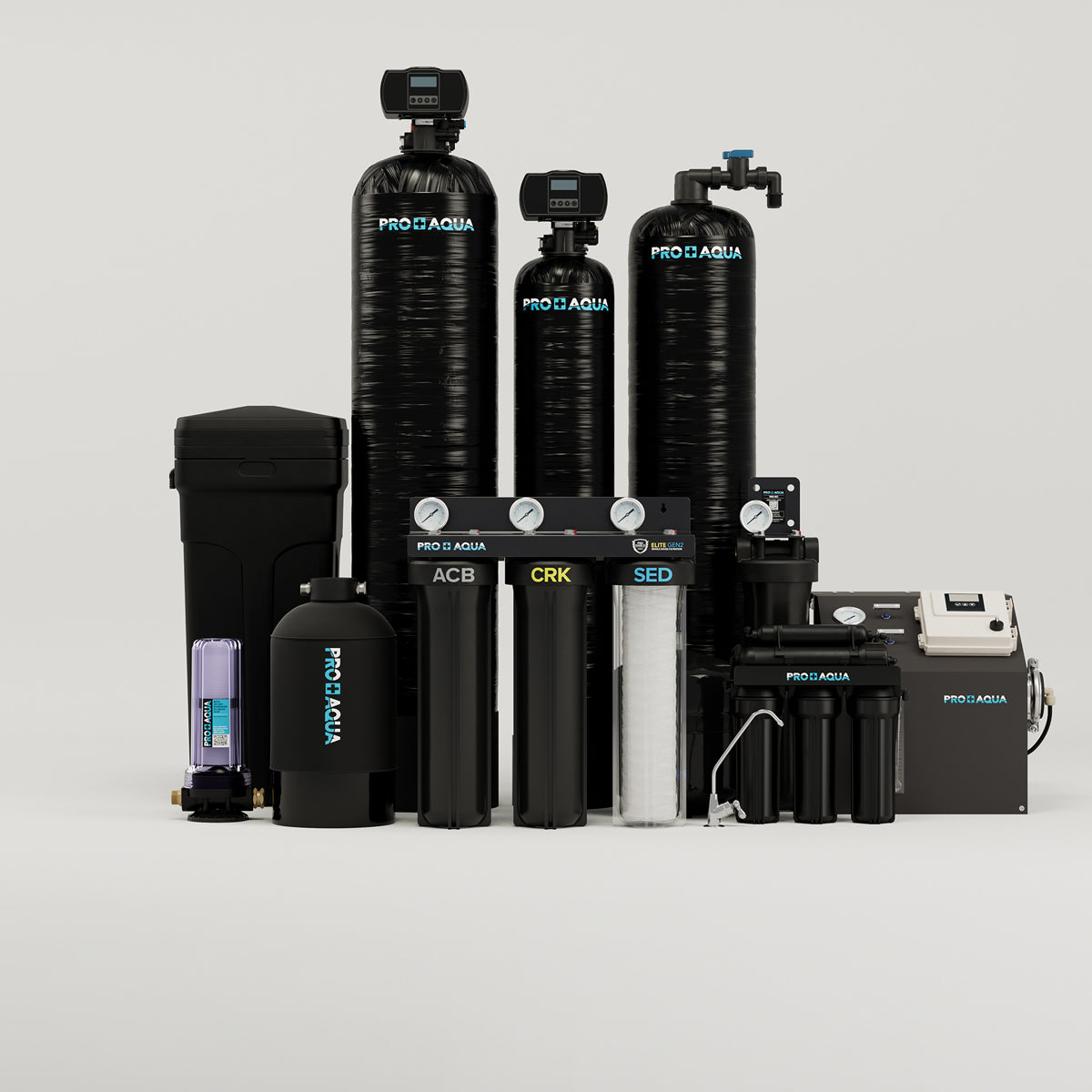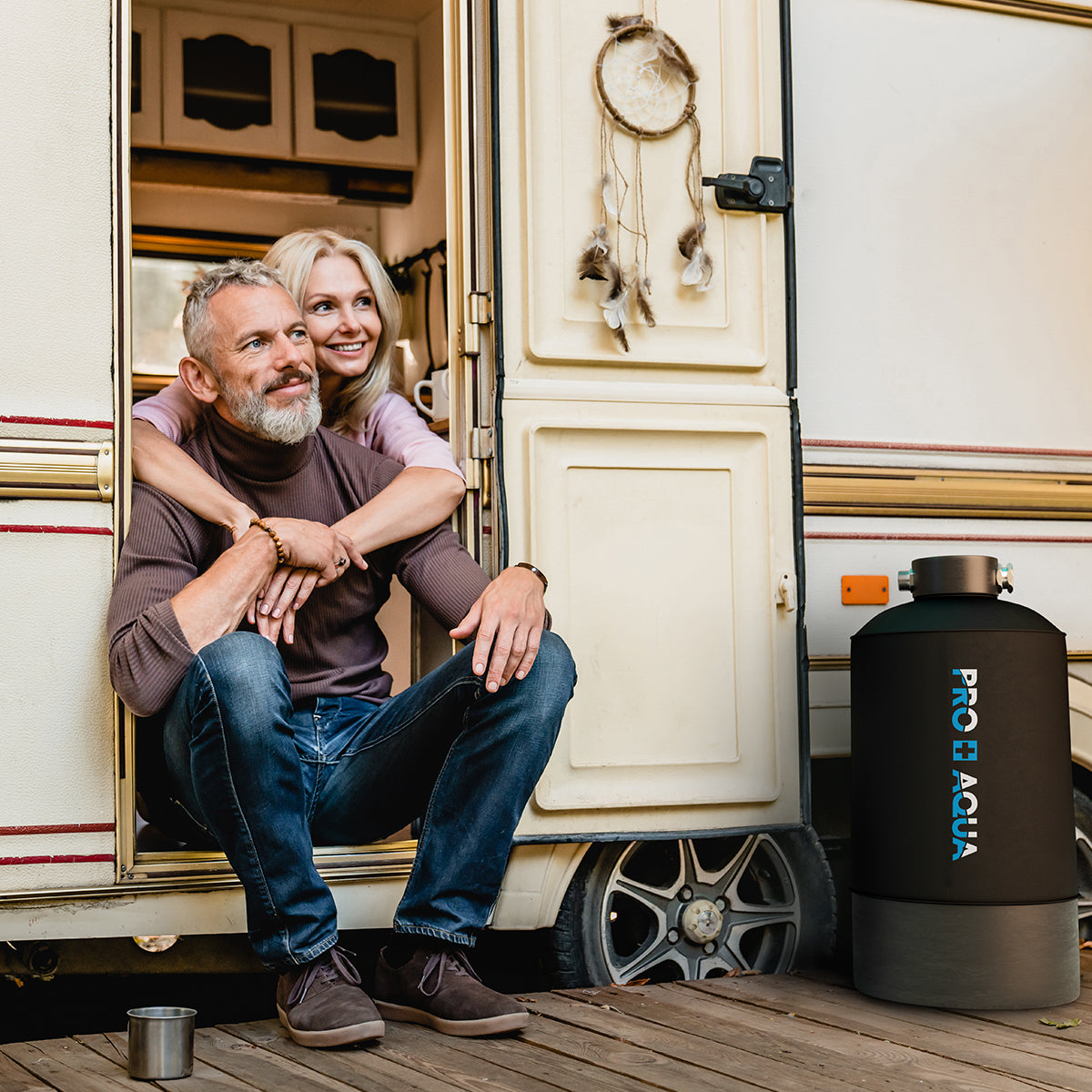Clean drinking water is essential to human life. In the United States, households get their water from two primary sources: municipal water supplies and private wells. Municipal water supplies are treated by the city and pumped to your home, while well water may or may not be treated as it is pumped from the well. Even though both water sources are generally safe, the water you use for drinking, bathing, and cooking may contain contaminants. To better understand the differences between city water and well water, we will explore important facts about these water sources below. This information will help you select the best well water filtration system for your and your family’s needs.
What Water Source Serves My Home?
Believe it or not, many people do not know where their water comes from. As many as 15 million households, or about 43 million residents in the United States, receive household water from privately-dug or drilled wells. The rest typically receive water from a municipal supply network. If you do not know your water source, here are some tips to help you discover where your water comes from:
Do you receive a monthly water bill? If the answer is yes, your water is supplied by the city or municipality where you live.
Is there a pump, piping, or tank located nearby your home? If so, your water source is a well. A well casing, tall pressure/storage tank, and pumping equipment are often located out in the open or may be covered by a small well enclosure.
Everything You Need to Know About City Water
In the United States, water quality standards are established, regulated, and enforced by the Environmental Protection Agency (EPA). Water must meet certain standards for safety and quality. City water supplies are treated with a variety of chemicals and filters to ensure water safety.
Chemicals used to treat city water may include chloramines, fluoride, and chlorine to kill bacteria and viruses before they can make you sick. After water is treated, tiny amounts of residual chemicals can be found in household water supplies. The regulations allow for these chemicals to be present, but if more than the allowed amount remains in the water, potential safety and health hazards do exist.
Chlorine is the most common chemical used to disinfect water. In small amounts, chlorine is safe. When the maximum level is exceeded, it can be dangerous. Of particular danger are disinfection byproducts known as trihalomethanes (THMs). These compounds can increase the rate of certain cancers and may damage the central nervous system.

Dissolved minerals and metals may also be found in municipal water supplies. High levels of dissolved minerals, particularly calcium and magnesium carbonates, lead to a condition called hard water. It is estimated that about 85% of all water supplies, including both city water and well water, are hard. Hard water can damage appliances, leave stains on clothing, and lend a cloudy or discolored appearance to sinks, tubs, and cookware. Certain heavy metals such as lead may also leach into water supplies in areas where old pipes or plumbing carry the water to the household fixtures.
Information About Well Water
Because wells are private, they are not regulated by state or federal authorities. Homeowners must pay for water testing and treatment out of pocket to prevent contaminants from causing illnesses. Most well water supplies are relatively safe, but may contain several possible contaminants and pollutants, including:
- Bacteria
- Pesticides
- Viruses
- Agricultural runoff
- Metals
- Dissolved minerals
- Trace elements
- Nitrates
- Tannins (a chemical compound produced by decaying plant material)
Tiny amounts of these contaminants may not be harmful, but over time may lead to serious health concerns. It is imperative that homeowners protect the health of their loved ones by conducting frequent water safety testing.
Treating Water Supplies to Remove Harmful Contaminants
City water is treated before it reaches your home, but still may contain unpleasant or hazardous levels of certain contaminants. The best way to ensure clean, fresh, and safe drinking water is to use a whole house water filtration system. These multi-stage filters remove contaminants like chlorine, fluoride, and minerals; the last stage is a carbon filter element that improves taste and odor of the water.

Well water can also be treated using a filtration system. The best whole house well water filtration system will also include multiple filtering stages. Typically, the first stage acts as a screen to remove sediments and other particulate matter. The next stage contains proprietary filtration media to remove heavy metals like chromium, lead, and nickel. It also removes hydrogen sulfide, the compound that can give well water an unpleasant odor like rotten eggs. Finally, the third stage uses an activated carbon block for final treatment to rid the water of harmful pollutants like VOCs, pesticides and more – leaving the water clean, fresh, and pure. The best whole house well water filtration system gives you and your family peace of mind, knowing that your water is safe for all your household uses.







Leave a comment
This site is protected by hCaptcha and the hCaptcha Privacy Policy and Terms of Service apply.